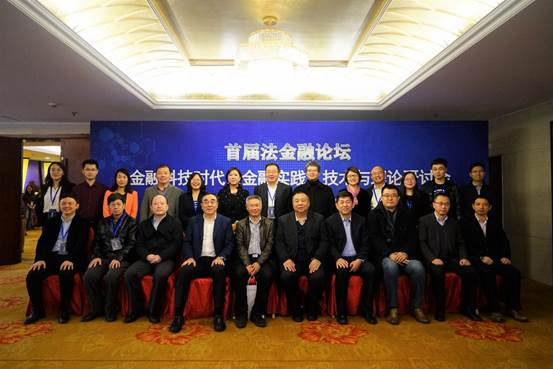
Picture: Group photo of guests
On November 21, 2019, the first Law and Finance Forum of China University of Political Science and Law-Financial Technology, Law and Finance Seminar in the Age of Fintech was held in Beijing, in order to thoroughly implement the spirit of the Fourth Plenary Session of the 19th Communist Party of China (CPC) Central Committee, implement the business school's "one body, two wings, and integrate innovation" school-running philosophy, promote the construction of disciplines related to finance and law, focus on the frontier issues of economic and social research, introduce theoretical results, and bring out suggestions for economic development in the new era. This forum is hosted by the CUPL Business School and is coordinated by the School’s Department of Capital Finance, the Department of Economics Department and the Department of Financial Accounting.
Expert of the Theoretical Economics Group of the Academic Degrees Committee of the State Council and Dean of the Economic Research Institute of Shandong University, Professor Huang Shao'an, Director of the Institute of Securities and Futures of Central University of Finance and Economics, Professor He Qiang, Deputy Secretary of the Party Committee of the School of Marxism, Tsinghua University, Professor Zhu Andong, Researcher of Institute of Economics, Chinese Academy of Social Sciences and Deputy Director of the Editorial Department of "Economic Development", Researcher Li Rengui, Deputy Dean of the School of Continuing Education, University of Chinese Academy of Sciences, Professor Sun Yi, Dean of Xicai Beijing Research Institute and Vice President of Beijing State-owned Assets Management Co., Ltd., Zhang Xingsheng, Professor of University of International Business and Economics, Professor Guo Liangsong, Director of the Xicai Global Financial Strategy Laboratory at Southwestern University of Finance and Economics, Professor Fang Ming, Deputy Director of Tencent Institute of Finance, Liu Jian Senior Economist, Dean of the CUPL Business School, Director of CUPL Institute of Capital Finance, and Director of CUPL MBA Education Center, Professor Liu Jipeng, Party Secretary of the CUPL Business School, Professor Li Xinyu, Deputy Dean (Executive Deputy Director of MBA Education Center), Yang Jie, Executive Deputy Director of MBA Education Center, Professor Hu Jiye, Assistant Dean of CUPL Business School, Assistant Professor Xiong Jinwu, Director of the Department of Capital Finance, Associate Professor Cheng Bibo, Director of the Department of Economics, Professor Deng Da, Deputy Director of the Department of Economics, Associate Professor Huang Lijun, Staff at Civil, Commercial and Economic Law School, Ren Qiming, as well as a total of more than 70 people from Business School (MBA Education Center), on behalf of some students, participated in this forum.
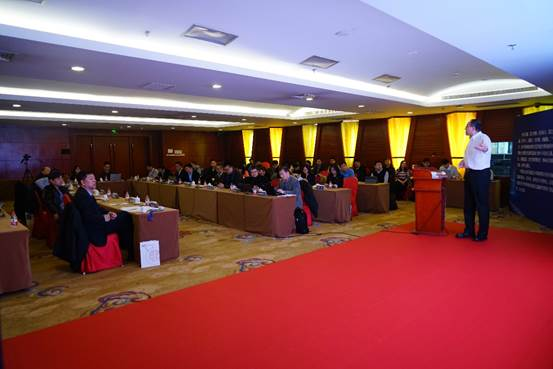
Figure: Conference site
Today's finance has entered the era of the integration of finance + technology. For the development of China's finance, the new technological changes represented by the blockchain can be described as both opportunities and challenges. The ability of economic and financial management and the ability to prevent, control and resolve risks cannot be separated their foundation, the rule of law. The forum aims to promote research in Law and Finance, Capital Finance, Fintech, Financial Supervision, Law and Economics, and is divided into five stages.
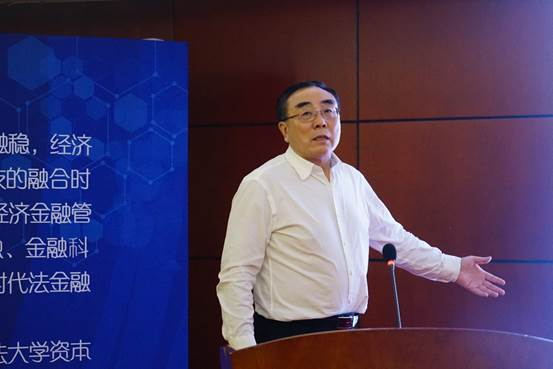
Picture: Dean Liu Jipeng's speech
At 9:00 am, the first stage of the forum-the opening ceremony, was chaired by Associate Professor Cheng Bibo, and Dean Liu Jipeng delivered a speech. Dean Liu Jipeng said that the integration of law and economics is extremely critical, and the discipline system of "one body, two wings" of the Business School of CUPL is an important support for legal and financial research. He further proposed that the current law and economics research requires the combination of theory and practice, the combination of China's national conditions and international norms, and the combination of law and economics. The fusion of fairness of law and the efficiency of economics is conducive to highlighting the strong vitality of law and economics.
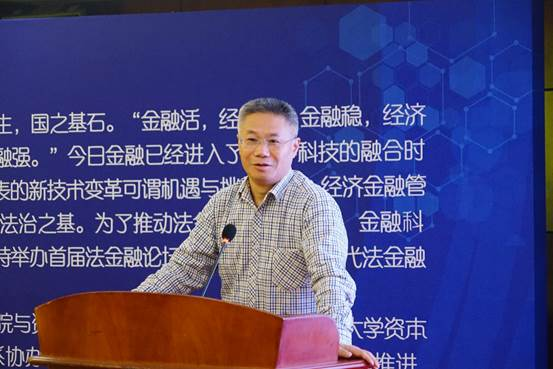
Picture: Professor Huang Shao'an
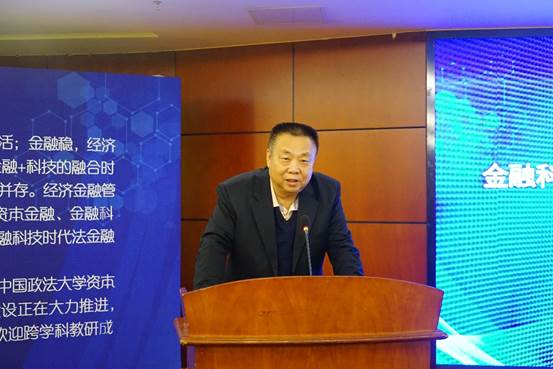
Picture: Professor He Qiang
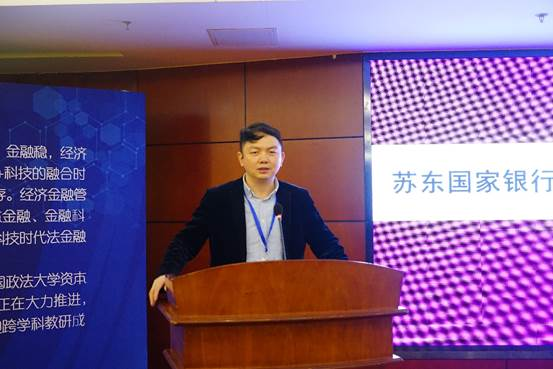
Picture: Professor Zhu Andong
The second stage of the forum, Capital Finance, was chaired by Professor Hu Jizhen, and Professor Huang Shaoan, Professor He Qiang, and Professor Andong Zhu delivered speeches. Huang Shao'an said that the core issue of finance is the issue of risk and the issue of building a credit system. Financial mismatch, information asymmetry due to the quality of information and irrational wealth distribution are the main problems in modern credit systems. At the same time, he believes that relying on blockchain technology to improve the relevant laws of the capital market is precisely a combination of law and economics, and the realization of this combination will require continuous efforts in the future. He Qiang believes that it is necessary to supervise according to law, rely on the law, and design institutional arrangements with the purpose of protecting the interests of investors both in the field of fintech innovation and the capital market. Subsequently, Zhu Andong analyzed the development history of the eastern Soviet Union and concluded that financial capital has mastered the country's financial, political, and cultural resources. Therefore, maintaining the initiative of the party and government, and preventing external risks is more conducive to China's economic development.
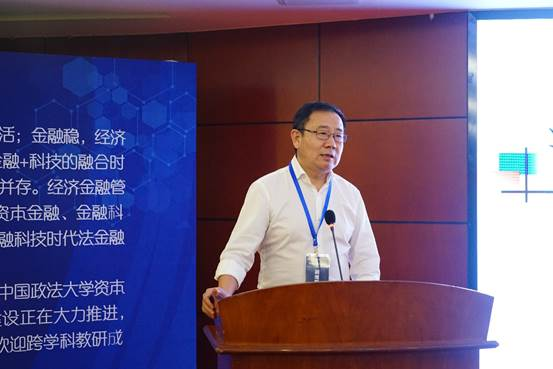
Picture: Professor Hu Jichen
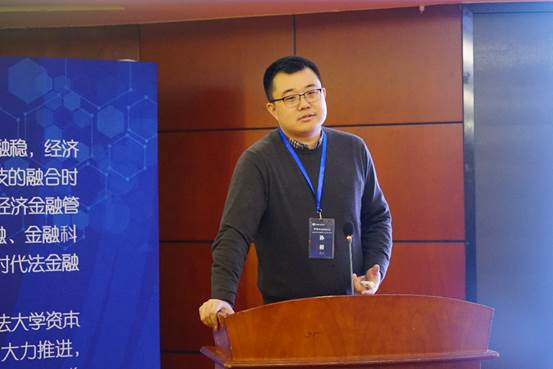
Picture: Professor Sun Yi
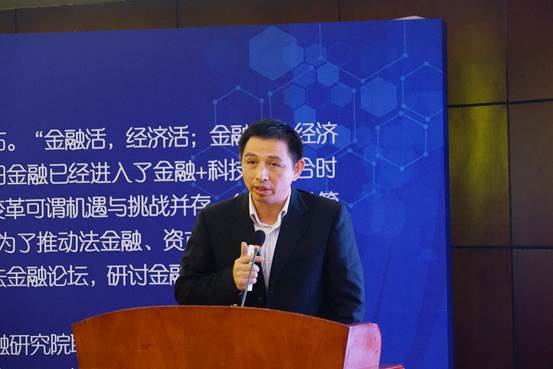
Picture: Professor Fang Ming
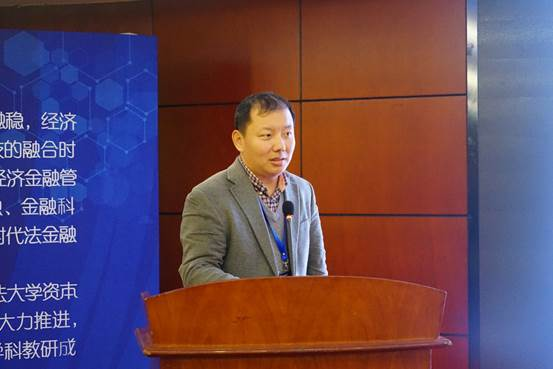
Picture: Deputy Researcher Zhou Jianjun
The third stage of the forum——Law and Finance, was chaired by Associate Professor Cheng Bibo, and Professor Hu Jizhen, Professor Sun Yi, Professor Fang Ming, and Deputy Researcher Zhou Jianjun gave speeches. Hu Jiye said that the research into Law and Finance should have its own methodology. Governing the country according to law not only create institutional conditions for the prevention of the international financial crisis and the promotion of financial development, but also lay a good institutional foundation for economic growth. Sun Yi believes that data is the real driving force for fintech innovation, and it will remain at its core in the future. At present, data protection faces the challenges of natural monopoly, black box supervision and high cost of rights protection. This requires the joint efforts of industry self-regulation and social supervision. It should adhere to the principle of minimum availability, maintain user autonomy over data, establish data market access mechanisms, and strengthen antitrust. Fang Ming gave a speech from two aspects: the technological revolution and the exploration of new financial and capital policy tools. First, technology has promoted the financial revolution in terms of inclusiveness, customers, marketing, operations, channels, risk control, pricing, organization, resources, and supervision. Second, quantifiable indicators should be constructed to regulate the development of the capital market. Zhou Jianjun said that China, as a developing country, should formulate antitrust policies in line with China's national conditions, and better achieve economies of scale and technological innovation.

Picture: Zhang Xingsheng Senior Economist
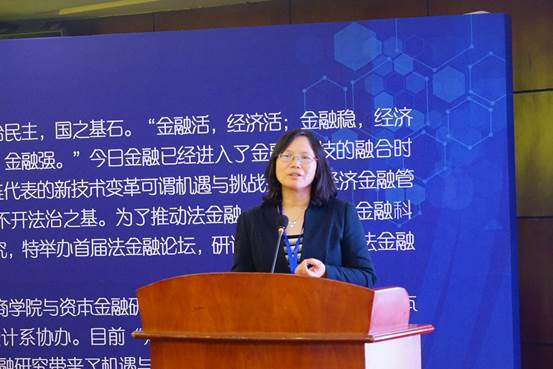
Picture: Associate Professor Huang Lijun
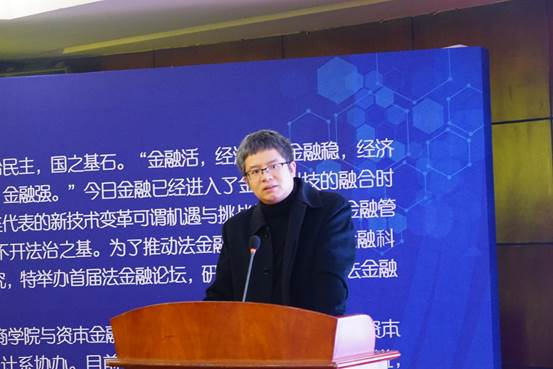
Picture: Associate Professor Cheng Bibo
At 13:50 pm, the fourth stage of the forum-Financial Markets, was chaired by Associate Professor Xiong Jinwu, and Senior Economist Zhang Xingsheng, Associate Professor Huang Lijun and Associate Professor Cheng Bibo gave speeches. Zhang Xingsheng supplemented the speeches of the experts in the morning. He believed that: First, the real problem of research on financial mismatch lies in the dynamic balance between returns and risk of mismatch. Second, in terms of financial opening and economic growth, the long-term economic recession caused by rapid privatization and bank opening is different from that of the former Soviet Union and Eastern Europe. Third, although Fintech has certain difficulties, it is still indispensable. On the basis of the EGARCH-M model, Huang Lijun explored Islamic religious and financial issues, and the results showed that the constraints of Islamic teachings made the Islamic stock market more stable. Professor Cheng Bibo discussed the lack and improvement of the asset pricing model regarding main market risks. He proposed a pricing model that added a linkage relationship between price and rate of return, and stated that verifying whether asset β based on this formula would guide practice in the future direction of effort. Later, in the free discussion session, Professor Song Guoliang proposed that the combination of law and finance emphasized fairness and efficiency, and fairness could not be ignored for efficiency.
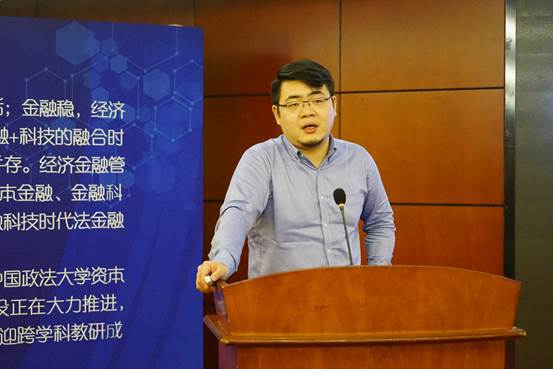
Picture: Mr. Ren Qiming
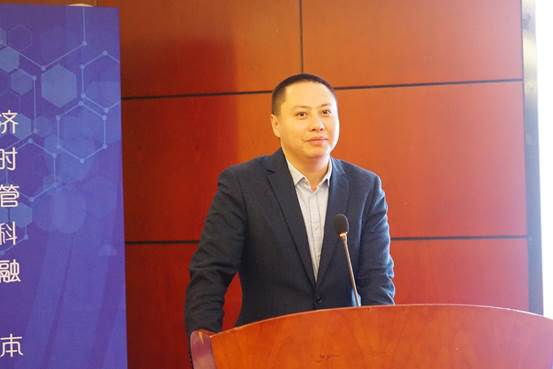
Picture: Deputy Dean Liu Jian
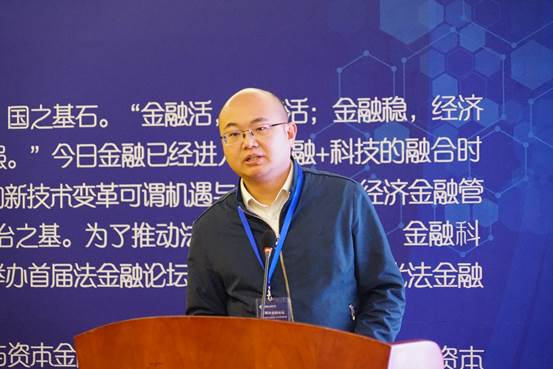
Picture: Associate Professor Xiong Jinwu
The fifth stage of the forum-Fintech, was chaired by Associate Professor Huang Lijun, and Mr. Qiming Ren, Vice President Liu Jian, and Associate Professor Xiong Jinwu delivered speeches. Ren Qiming believes that we should find the regulatory path of digital finance from all aspects of regulation, including self-regulation, inclusive regulation, environment regulation, and technology regulation. Liu Jian discussed the legal regulation path of Fintech from the aspects of content, subject, procedure and responsibility. Xiong Jinwu analyzed financial technology from the perspective of the historical changes of human civilization and believed that only the rule of law can make finance develop.
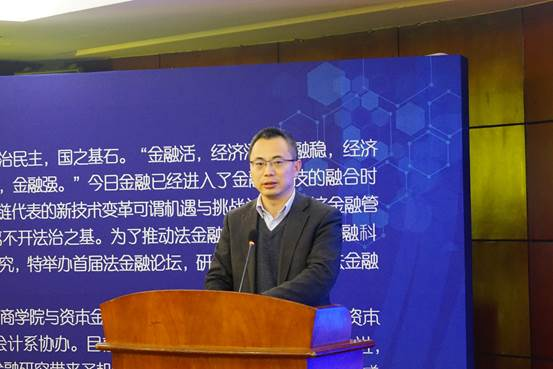
Picture: Secretary Li Xinyu
Finally, Secretary Li Xinyu delivered a closing speech. He thanked experts, scholars and guests for participating in this forum on behalf of the college party committee. He said that the forum's experts, scholars and guests are very representative, the topic is particularly valuable, and it is particularly meaningful for the construction of business schools.
The forum was held shortly after the closing of the Fourth Plenary Session of the 19th Communist Party of China Central Committee. The forum explored and studied cutting-edge issues such as financial practice, technology, and theory in the financial technology era. The academic reflections and suggestions on national hotspots undoubtedly meet the requirements of the Fourth Plenary Session of the 19th Communist Party of China Central Committee to “accelerate the construction of a modern economic system,” which in turn will be beneficial to China's economic development in the new era. It is reported that after the first forum, focusing on the related issues of law and finance, the Business School of China University of Political Science and Law will hold the Law and Finance forum once a year and strive to gradually introduce theoretical results.
Text: Li Hui, Zeng Hongrui
Photo / Business School News Center